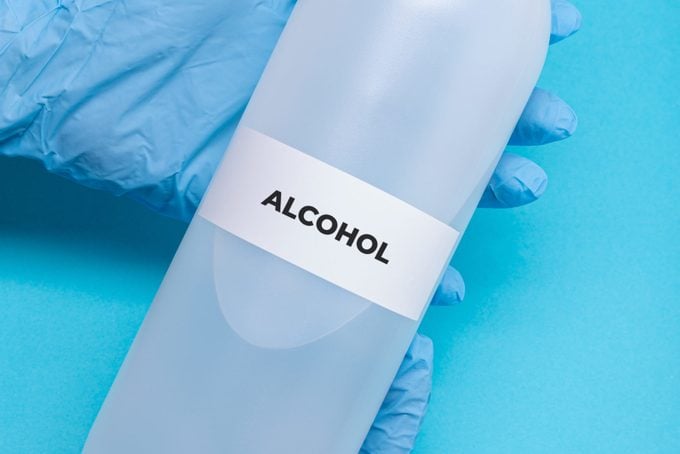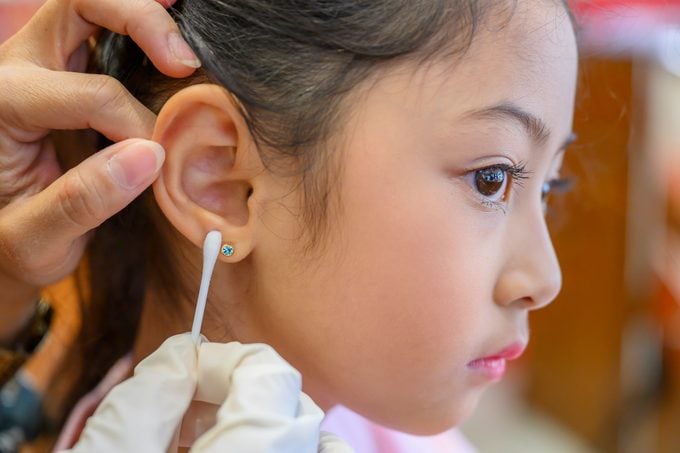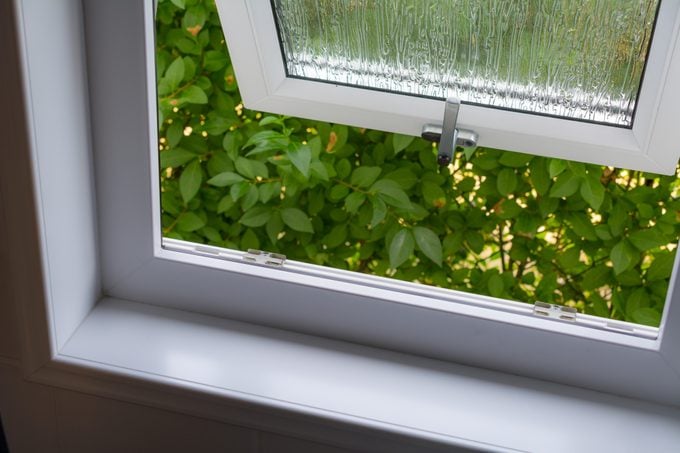8 Uses for Rubbing Alcohol You Never Knew About (and 2 You Should Avoid)
Updated: Mar. 14, 2022
Your health can benefit from rubbing alcohol in ways that go way beyond wiping down surfaces. But you have to use caution—here's what doctors want you to know about rubbing alcohol uses.
Due to the spread of Covid-19, you now likely have a bottle (or a few) of rubbing alcohol in your medicine cabinet as your go-to disinfectant for killing germs. After all, rubbing alcohol is considered a powerful germicide, especially at concentrations of 60 percent or more. The popular household item has many uses in the home for cleaning and disinfecting purposes, but what about when it comes to health ailments? (Here are 9 EPA-registered coronavirus cleaning products.)
To know how to use it safely and effectively for health purposes, it’s important to first learn about its composition.
What is rubbing alcohol?
Rubbing alcohol typically comprises of 70 percent isopropyl alcohol, but the percentage can range from 60 to 99 percent. This type of alcohol is different than ethanol or ethyl alcohol in liquor, beer, and wine. Rubbing alcohol is colorless and looks a lot like water, explains the Centers for Disease Control and Prevention (CDC).

When rubbing alcohol can help your health
Rubbing alcohol is one of the main ingredients in hand sanitizer, according to the Food and Drug Administration. But this inexpensive household staple has health uses beyond DIY hand sanitizer to kill the germs that cause the Covid-19 virus. Take a look down below to see how you can use it for your own health.
Rubbing alcohol use: Nausea
Breathing in the strong, pungent fumes of rubbing alcohol can curb nausea, says Robert Glatter, MD, an emergency physician at Lenox Hill Hospital in New York City. “Inhalation of rubbing alcohol was more effective than standard anti-nausea medications in some studies,” says Dr. Glatter. “This can be accomplished by inhaling the vapor from alcohol prep pads.” It’s safe to try this at home in a pinch, he says, but avoid doing so repeatedly.
Rubbing alcohol use: Removing splinters
Rubbing alcohol can be used to disinfect your skin before you try to remove a splinter, shares Adam Friedman, MD, a professor and interim chair of dermatology at George Washington School of Medicine and Hospital in Washington, DC. In these instances, pour some rubbing alcohol on a cotton ball and dab the area with the splinter, he says. You can also clean and disinfect your tweezer with alcohol before you attempt to remove your splinter, Dr. Friedman adds.
Rubbing alcohol use: Daily insulin injections for diabetes
People with diabetes who need insulin injections to help control blood sugar levels must clean and disinfect the area with an alcohol swab or rubbing alcohol-soaked cotton before injecting. It’s also important to wait until the alcohol has dried before you inject, the Association of Diabetes Educator Specialists reports. During the Covid-19-pandemic, there have been concerns that shortages of rubbing alcohol, which may occur as a result of people making their own sanitizer, would affect diabetes care.
Rubbing alcohol use: Trimming nails
Wipe down your nail clippers or scissors with rubbing alcohol before you give yourself a manicure or pedicure or trim a child’s nails, suggests Angela J. Lamb, MD, an associate professor in the department of dermatology and director of Westside Dermatology Faculty Practice at Mount Sinai Medical Center in New York City. “You can apply it to a cotton ball and wipe the tools down or submerge them in rubbing alcohol,” Dr. Lamb says. This 30-second exercise gets rid of germs STAT.
Rubbing alcohol use: Popping a blister
If you have a blister, wipe down your skin and any tool you plan to use to pop it with rubbing alcohol. This will help stave off infection, Dr. Lamb says. However, popping blisters isn’t as recommended as these other home remedies for blisters.

Rubbing alcohol use: Ear piercing
Newly pierced ears can become infected, according to the American Academy of Dermatology (AAD). Rubbing alcohol, when applied to a cotton ball and used to clean around the piercing twice daily, can help stave off infection. The AAD also recommends using a thin coat of petroleum jelly around the opening.
Rubbing alcohol use: Removing a tick
Ticks can carry many types of disease, and therefore it’s important to remove any ticks you find on your body as quickly and safely as possible to minimize the risk of developing a tick-borne illness. Here’s how rubbing alcohol can help: First, clean the bite area and your hands with rubbing alcohol, an iodine scrub, or soap and water after you remove the tick with tweezers. Get rid of the live tick by putting it in rubbing alcohol, placing it in a sealed bag or container, wrapping it tightly in tape, or flushing it down the toilet, the CDC states.
Rubbing alcohol use: Disinfecting your thermometer
Rubbing alcohol can disinfect thermometers between uses, advises the American Academy of Pediatrics. This holds for rectal and oral thermometers, the group says. Remember to let the alcohol dry entirely before using the thermometer.
When rubbing alcohol is NOT helpful
As helpful as rubbing alcohol can be, there are instances where the disinfectant is not recommended as a do-it-yourself remedy.
Cleaning open wounds or cuts
Some may use it to clean out a cut, but plain soap and water is a better bet, Dr. Lamb says. “If you have a cut that is not deep enough to need stitches, clean it with plain soap and water and keep covered,” she says. Rubbing alcohol may do more harm than good on open wounds. “It will burn and sting,” she says. “Rubbing alcohol also changes the skin’s pH level and disrupts your skin’s barrier. It de-greases skin and dries it out which can make it more prone to infection.” Your skin needs to keep a balance between alkaline and acidic—a neutral pH level; rubbing alcohol tends to be on the acidic side. By maintaining an optimal pH level, you’ll improve your skin’s barrier function and better retain moisture, Dr. Lamb explains.
Managing acne breakouts
Just don’t do it, warns Lamb. Yes, she notes: “Rubbing alcohol is the base ingredient of many anti-acne pads, but it degreases the skin and affects the all-important barrier.” Instead, try these surprising home remedies for acne.

Safety tips for rubbing alcohol and poison prevention
When using rubbing alcohol, make sure you’re in a well-ventilated area, the National Capital Poison Center suggests. Also, since rubbing alcohol is flammable, it’s best to keep away from open flame, the group advises. Be sure to pay attention to the expiration date as well, says Dr. Lamb. “Rubbing alcohol has a relatively long shelf life but you should follow the expiration date,” she says.
Keep in mind that it is never a good idea to drink rubbing alcohol. Keep it out of children’s reach as it looks a lot like water, Dr. Lamb warns. This is extremely dangerous; it’s important to seek medical help right away if you or someone you know has ingested rubbing alcohol.
For more information or help, call the Poison Control national hotline number at 1-800-222-














